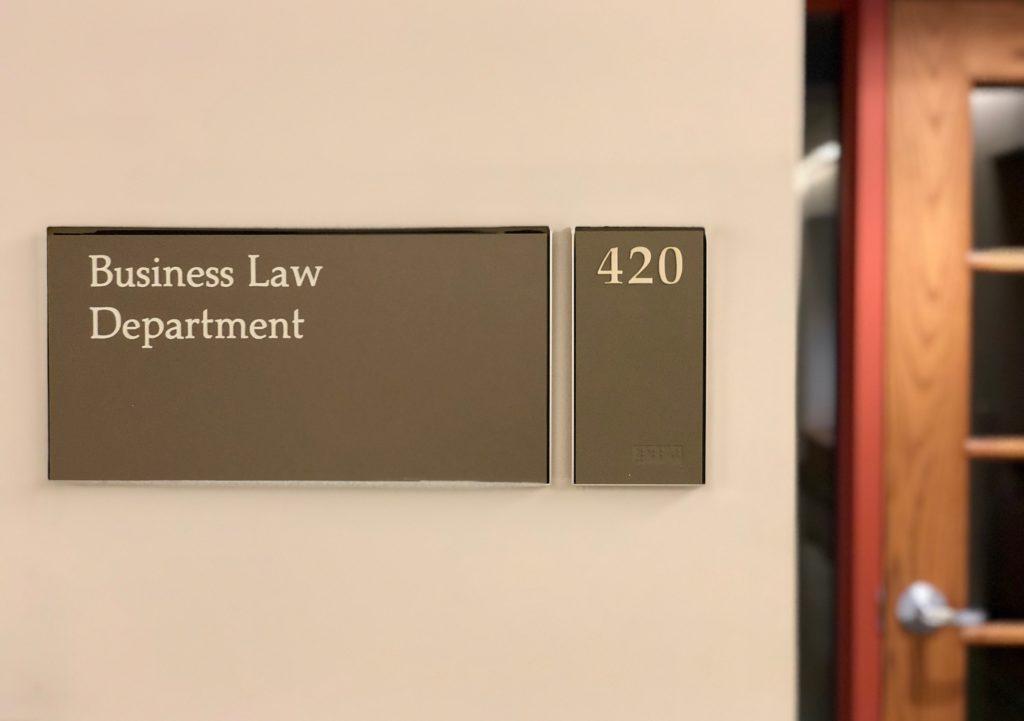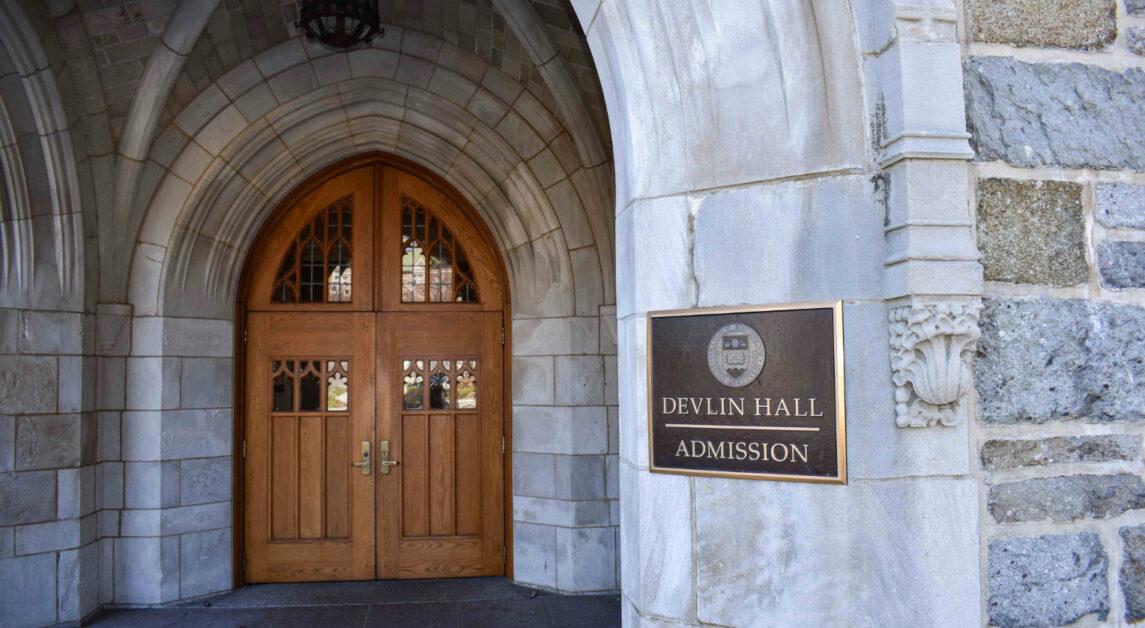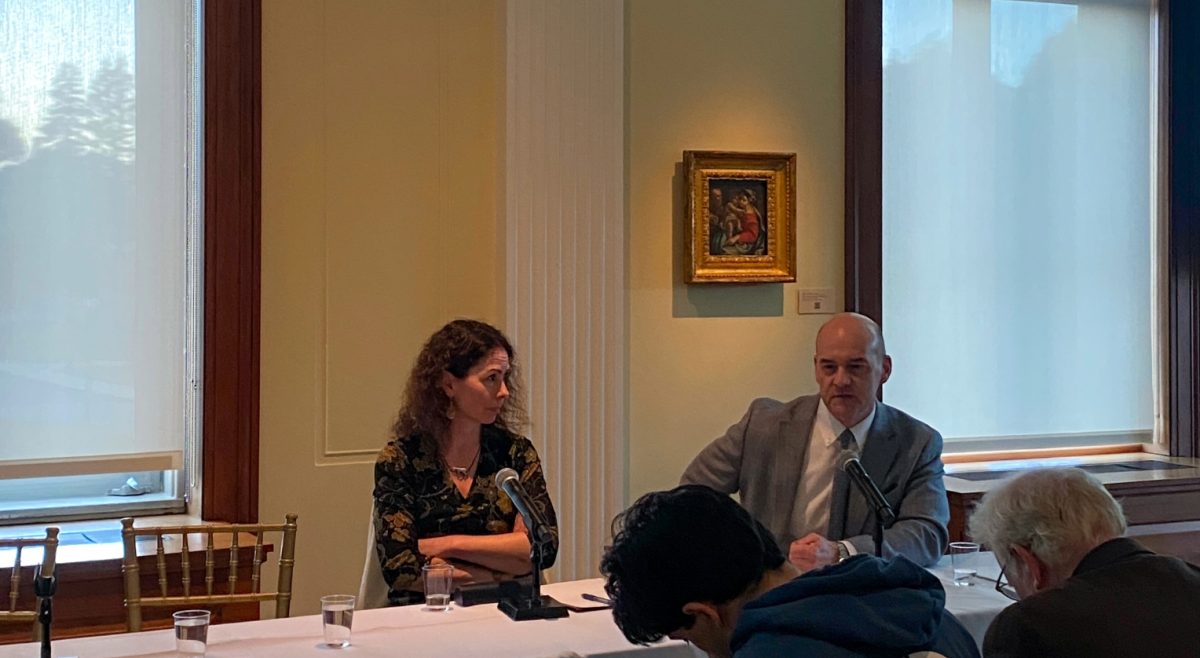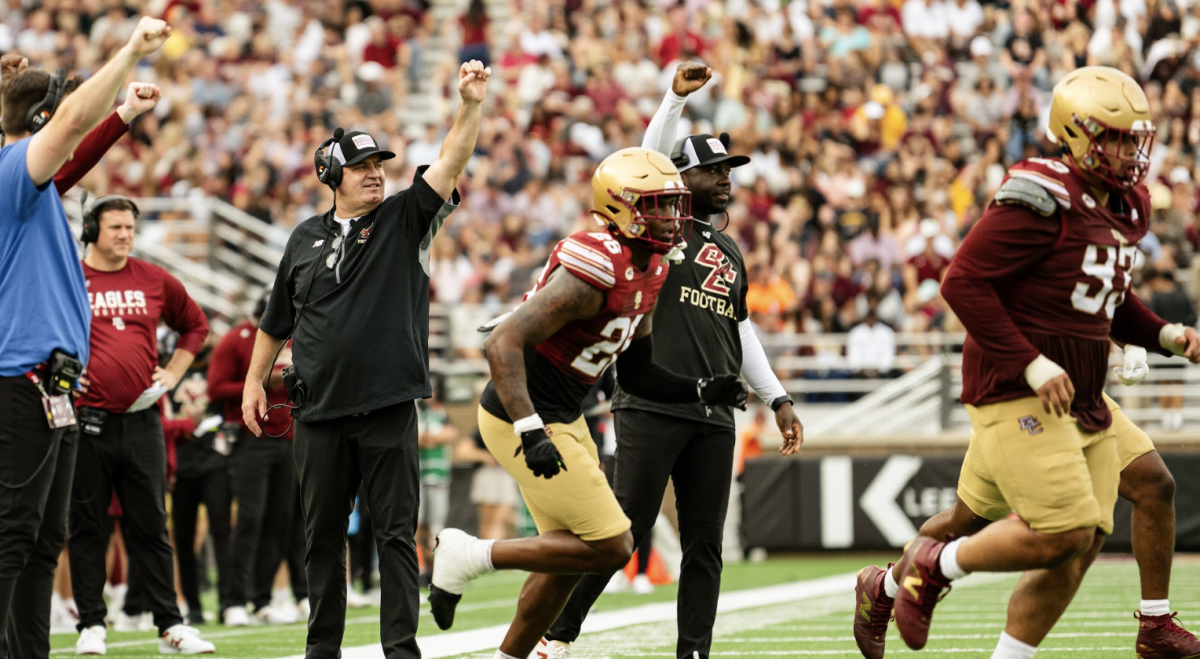A proposal for a legal studies minor began circulating among the Boston College community last week, with an attached survey to gauge student interest. Nishant Varma, MCAS ’21—one of the primary organizers of the proposal—said there were 195 responses as of Sunday afternoon.
Of the respondents, 45.7 percent said they were pre-law versus the 47.3 percent who said they were not. One hundred thirty respondents said that they would minor in legal studies if it were offered, 52 said that they would consider it.
If approved, Varma sees the minor as an opportunity for students to become more familiar with the law, regardless of their future career interests.
“This minor would be the perfect way to get exposure, because you’re not committing yourself to anything, and you’re still learning about the law,” he said. “It would serve to give you knowledge about the law and develop the skills necessary for practicing it.”
“We feel that the current Pre-Law track at BC is insufficient, and there is extreme interest within the student body to learn about the law,” said Brigid Kelley, another organizer of the proposal and MCAS ’19, in an email.
“My hope is that the Legal Studies minor is an academic area where students can be supported beyond the classroom to have a community of other like-minded students to learn and grow from.”
She also added that the minor would be called “Legal Studies” rather than “Pre-Law” since it is a collection of courses in and about the legal field.
The minor would consist of 18 credits, with all students required to take an introductory course, “Law I – Introduction to Law & Legal Process,” a class currently offered in the Carroll School of Management’s Business Law department. Additionally, successful completion of the minor would require enrolling in “Philosophy of Law”—a course designed as a senior capstone seminar.
Two classes must come from both the Morrissey College of Arts and Sciences (MCAS) and the Carroll School of Management (CSOM). Most of the proposed CSOM electives are in the Business Law department, while MCAS courses would span several different departments, including history, economics, and political science. Courses in the Woods College of Advancing Studies would also count for credit.
“There are already classes in the curriculum of both CSOM and MCAS that contain relevant information for this minor, and Nishant and I are hoping to show the administration that the bones for this minor are already in place, we just need some administrative organization to develop the minor,” Kelley said.
A proposed minor must have significant faculty support and be approved by the Office of Undergraduate Academic Affairs to be integrated into BC’s curriculum, according to Amy DiGiovine, assistant director for career engagement at the Career Center. The Heights reached out to Joe Burns, associate vice provost for undergraduate academic affairs, for comment on the proposed minor, but received no response by press time.
“Students would get a feel for what a class in law school feels like, especially legal research papers,” Varma said. “So many students go into law school having never written one, but in every in business law class, you are required to write at least one.”
“It may not translate particularly to the LSAT score, but I know it would impact students’ performance in law school,” he said. “It’s all about exposure, [and] having the opportunity to talk to professors that have practiced law.”
He tried to dispel the notion that the Legal Studies minor would solely be intended for students interested in law school.
“Our biggest thing is that anyone can take this minor, you don’t have to want to go to law school, you don’t have to want to be a lawyer,” he said. “It’s for the people that have an interest in law and want to learn about it, and that’s what minors are supposed to be for.”
The American Bar Association does not recommend that students interested in applying to law school follow any specific course regimen. Instead, the association notes that it is most important to develop research and writing skills.
“Many law school admissions professionals I have spoken with do not value undergraduate law courses or minors,” DiGiovine said.
“Law-related classes are one way to explore an interest in law,” she said. “However, there are many other impactful ways to explore a legal interest, such as job shadows and career conversations with attorneys; visits to law schools; mentor programs with current law students; government, policy, [and] law internships; pre-law student organizations; and full-time employment after an undergraduate education.”
Nonetheless, Nishant still believes a legal studies minor would be valuable for students.
“There’s obviously going to be a big overlap between pre-law students and the minor, and there’s going to be an overlap with those who do end up going to law school,” he said. “But this minor would serve as a way for someone to decide if law school is right for them.”
“I read somewhere that [BC has] a lot of pre-law students … and I thought that there would be a lot of opportunities, and I saw they had a business law department, so I was pretty excited,” he said. “After getting here, I realized there’s no concrete curriculum offered.”
Varma recalled how he attended an event hosted by the Bellarmine Pre-Law Society, where they had a list of classes relating to law. According to Varma, a few years ago a group of students drafted a rough proposal for a minor, but they never got any traction. The Heights also published an editorial in 2007 in the midst of discussion surrounding a law minor at BC.
“But students interested in taking a law-specific approach in their undergraduate careers should at least be offered a clear set of courses that might adequately prepare them for law school or an undergraduate program of study in law,” the editorial read.
Varma walked out of that Bellarmine Pre-Law Society event wanting to restart the conversation, and remembered thinking, “We should just give this a shot.” He hopes it will not be too challenging to get the minor approved.
“The reason why I don’t see this being that controversial is that it is just a minor,” Varma said “People can still major in whatever they want. Let’s say you are in science but are considering law school. Then you can enroll in the minor and get a feel for it.
“We have a pre-law advisor, but we don’t have a pre-law department. When it comes to opportunities our law societies on campus do a good job with holding events, but we need a department with professors.”
Featured Image by Cole Dady / News Editor



















